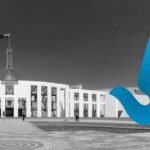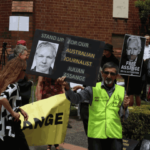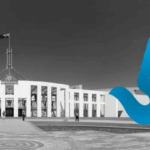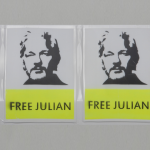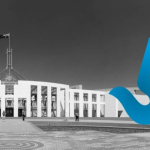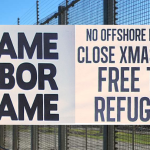Refugee Advocates Sick of Albanese Dragging Feet on Human Rights Reforms
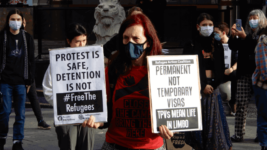
Towards the end of 2022, refugee rights advocates were complaining that when they raised the fact that the Albanese government hadn’t made good on its promise to provide those on temporary protection with permanent visas, they were still being told to “give them time”.
However, the Labor administration did find the time to act on a suite of other reforms during its first six months in office, so, advocates ask, why hasn’t it moved on its commitment that has implications for 31,000 individuals living in the community, who are known as the legacy caseload?
Indeed, according to ardent refugee rights advocate Jane Salmon, as the one year anniversary of tennis star Novak Djokovic’s deportation from the country comes around, it’s the “same shit, different year”.
The new government has certainly ensured the trimmings look good though, with Djokovic having entered the country regardless of vaccine status, author and former offshore detainee Behrouz Boochani now visiting the country and the Biloela family having been issued permanent visas.
But while this “high-profile window dressing looks slightly prettier” the fact is, continues Salmon, as a new cohort of offshore medical transferees are once again being detained in a hotel in Brisbane, most of the suffering implicit in this nation’s immigration system this time last year remains.
Again detained in hotels
Just before last May’s federal election, the then Coalition government released the final Medevac detainees from the hotels it had imprisoned them in since 2019, after it had long ignored a grassroots campaign to release them into the community.
This brought an end to the torturous practice of locking up those previously held offshore in hotels, or alternative places of detention (APODs), following their transfer to Australia on the basis that they needed urgent medical treatment unavailable on the islands where they were being kept.
That was until the Albanese government picked the practice back up on 23 December, with at least half a dozen long-term offshore detainees from Nauru having been flown to Australia for healthcare reasons, with five of them now currently confined to rooms in Brisbane’s Meriton Hotel.
“A handful of men, who were medevaced from Nauru just before Christmas 2022, are being denied the medical care they urgently need,” explains Salmon, who’s a member of the Australian Refugee Rights Network.
“They’ve spent the holiday season stuck in solitary hotel rooms, being denied ordinary freedom of movement,” she told Sydney Criminal Lawyers. “All they’ve seen for days has been grey rooms and the occasional nurse. There are no trips to the gym. Guards ensure they don’t wander the hotel.”
Permanency delayed
Albanese’s party didn’t, however, enter the last election promising to end the use of APODs. What it did pledge was to revoke the use of temporary protection visas. Yet, multiple mass protests held on the lawns of federal parliament last year attest to the fact that it hasn’t been acted upon as yet.
Just prior to Christmas, federal Labor announced it is going to grant 19,000 refugees living in the community on temporary visas permanent ones.
But, as Refugee Action Coalition spokesperson Ian Rintoul points out, this will leave at least 12,000 more without permanent protection.
“If we’re talking about the legacy caseload, as all the representations to the government have at least been doing… it means 31,000 people in the community – not just the 19,000 – are on temporary protection visas or the equally temporary safe haven visas,” he said a fortnight ago.
Rintoul further outlined that while Labor has stated the 19,000 individuals to be granted permanency, there has been no concrete timeline provided, and when it comes to people who are separated from family members that are still in jeopardy overseas, every day counts.
And another clear issue with the government dragging its feet on refugees is that the revoking of temporary visas doesn’t suddenly end the campaign for the rights of asylum seekers, as other outstanding problems aren’t being addressed whilst advocates are focused on visa reform.
Borrowed time
Meanwhile the 190-odd Medevac refugees detained in hotels by the Coalition have been released into the community. This is following their having arrived here in 2019 after the passing of the since-revoked Medevac laws, which opened the way for offshore detainees in medical need to come here.
But as Salmon suggests, rather than extending permanent asylum to these people, who were held in Australian custody overseas for close to a decade, the Albanese government continues to propose they be deported to third countries.
“The Medevac cohort are still unable to settle. Some now have jobs, partners, stellar careers. But none has any clarity about their own future,” the refugee advocate set out. “Some have their visas renewed every six months. Others live with visa rules that do not allow work or study.”
And in a show of how unwelcome the Home Affairs Department considers them, it sent out a letter to many of these refugees last October, informing them that they were not included in Labor’s promise to extend permanent asylum, and they ought to think about where else they want to go.
Such was the public outcry against this callous act on the part of government that home affairs minister Clare O’Neal announced in November that the whole fiasco had been an accident.
Same shit, different year
Over recent weeks, Salmon has been raising awareness to the plight of the new offshore detainees, and, despite having sent a letter to key ministers in the Albanese government regarding the resumption of this practice, the men continue to stew in an APOD.
As for what the delay in granting temporary visas to thousands of other refugees living in the community is preventing the campaign to focus on next, Salmon says the succeeding move will be to bring all the remaining offshore detainees to this country.
The Refugee Council of Australia advises that in November there continued to be 106 offshore detainees in Papua New Guinea and 92 on Nauru.
Of course, a Labor government commenced this practice making offshore detention of those arriving by boat mandatory on 19 July 2013.
And as far as Salmon is concerned, it’s the hardline public servants that remain in the Home Affairs Department following the departure of the Coalition from office, including secretary Mike Pezzullo, that are steering policy in a continued Operation Sovereign Borders direction.
“To all intents and purposes, Dutton and Morrison still run the Department of Home Affairs,” the long-term refugee advocate declared in conclusion. “Emptying Nauru and PNG is essential if this government wants respect or to stem the Teal tide.”


